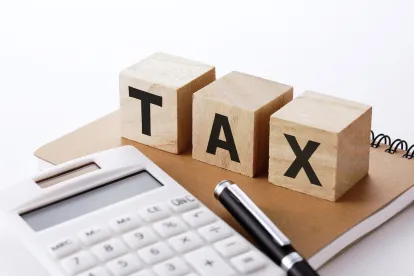While the IRS has been cracking down on syndicated conservation easements for over ten years, earlier this year Chuck Rettig, the Commissioner of the IRS, announced several campaign areas upon which the IRS would heighten focus in the coming year. Following through on this promise, on Nov. 12, 2019, the IRS announced a significant increase in enforcement actions for syndicated conservation easements in Issue Number IR-2019-182.
What is a Syndicated Conservation Easement?
Generally, a charitable deduction is not allowed for a gift of property that is less than the donor’s entire interest in the property. However, Internal Revenue Code sections 170(h)(1) through (h)(5) and Treasury Regulations section 1.170A-14 provide for an exception for a qualified conservation contribution. A qualified conservation contribution is a contribution of a qualified real property interest that includes a restriction, granted in perpetuity, on the use of the real property. The contribution must be exclusively used for conservation purposes. A charitable contribution deduction is allowed for the fair market value of the conservation easement donated to certain charitable organizations.
The concept supporting a charitable deduction for the donation of a conservation easement is fairly simple. However, in practice, taxpayers often run into limitations on the amount of the charitable deduction they can actually take. Rather than allow this limitation to prevent full use of a potential tax deduction, promoters and advisors set up syndications to purchase land for the purpose of then applying conservation easements. These structures often involve pass-through and tiered entities that hold or acquire real property to allow several investors to share in the charitable deduction, utilizing the deduction more fully so no taxpayer is likely to reach the 50 percent limitation on the contribution. Generally, the deductions claimed by investors in these transactions significantly exceed their amounts invested. In many cases, after acquisition by the syndication, property valuations and appraisals greatly inflate the value of the easement based on unreasonable conclusions about the development potential of the real estate. Then, the pass-through entity donates an easement encumbering the property to a tax-exempt entity, claiming a holding period of more than one year.
The IRS is Now Throwing Significant Resources Behind the Hunt for These Transactions
In 2016, the IRS labeled these transactions as “Listed Transactions” in Notice 2017-10. The Notice applies to certain transactions where promotional materials suggest to potential investors that they may be entitled to a share of a charitable contribution deduction that equals or exceeds two and a half times the amount invested. Per the Notice, individuals entering into these and substantially similar transactions must disclose them to the IRS via a disclosure statement on a Form 8886 as prescribed by Treasury Regulations section 1.6011-4(d). In addition, the Notice created disclosure and list maintenance obligations for material advisors to those transactions.
In 2018, these types of investments were added to the list of the Large Business and International Division’s compliance campaigns. The IRS moved these transactions from entity- and individual-based audits to issue-based treatment, handling these audits with highly trained revenue agents. The Conservation Easement Audit Techniques Guide includes almost 100 pages of instructions for examinations of charitable contributions of conservation easements.
These transactions are also included in the IRS’s 2019 “Dirty Dozen” list of scams to avoid. The IRS stated that syndicated conservation easements “start with a legitimate tax-planning tool that is improperly distorted … by a promoter to produce benefits that are too good to be true.”
In the IRS’s most recent publication, IR-2019-182, the IRS warned that “[c]oordinated examinations are being conducted across the IRS in the Small Business and Self-Employed Division, Large Business and International Division and Tax Exempt and Government Entities Division. Separately, investigations have been initiated by the IRS’s Criminal Investigation division. These audits and investigations cover billions of dollars of potentially inflated deductions as well as hundreds of partnerships and thousands of investors.”
The IRS also stated it is using “innovation labs” to develop new, more extensive enforcement tools that employ advanced technologies to discover additional abusive syndicated conservation easement transactions.
The Time to Consult a Tax Professional is Now
The IRS announced that it “will not stop” in its pursuit of “everyone involved in the creation, marketing, promotion and wrongful acquisition of artificial, highly inflated deductions based on these aggressive transactions.” The Service further stated that “every available enforcement option will be considered” including both civil penalties and criminal investigations.
With enhanced enforcement efforts at the IRS level, and over 80 cases currently pending in the Tax Court, taxpayers engaged in any syndicated conservation easement transaction should immediately consult with a competent tax attorney to determine the best course of action. The IRS is not only searching for those who took deductions, but also promoters, appraisers, tax return preparers, and all others involved in the transactions.
Taxpayers should heed Commissioner Rettig’s warning and take steps to get back into compliance before they hear from the IRS. Taxpayers with questions regarding how to get into compliance and whether they may be vulnerable to civil or criminal investigation or penalties should contact a competent tax controversy attorney.





 />i
/>i

